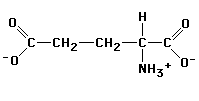Context:
Vitamin D is a potent secosteroid hormone that provides many skeletal and extraskeletal health benefits. Musculoskeletal injury prevention and recovery are potentially affected by sufficient circulating levels of the storage form of vitamin D: 25-hydroxyvitamin D3, or 25(OH)D. Vitamin D deficiency can exist among young, active, and healthy people, which may put them at increased risk for injury and prolonged recovery.
Evidence Aquisition:
PubMed was searched using vitamin D and skeletal muscle, vitamin D and athletic performance, and vitamin D review articles. Studies from the 1930s to 2012 were used for the review.
RESULTS:
There is strong correlation between vitamin D sufficiency and optimal muscle function. Increasing levels of vitamin D reduce inflammation, pain, and myopathy while increasing muscle protein synthesis, ATP concentration, strength, jump height, jump velocity, jump power, exercise capacity, and physical performance. 25(OH)D levels above 40 ng/mL are required for fracture prevention, including stress fractures. Optimal musculoskeletal benefits occur at 25(OH)D levels above the current definition of sufficiency (> 30 ng/mL) with no reported sports health benefits above 50 ng/mL.
Conclusions:
Vitamin D deficiency is common in athletes. For athletes presenting with stress fractures, musculoskeletal pain, and frequent illness, one should have a heightened awareness of the additional likely diagnosis of vitamin D deficiency. Correction of this deficiency is completed by standardized and supervised oral supplementation protocols producing significant musculoskeletal sports health benefits.
Keywords: vitamin D, vitamin D deficiency, musculoskeletal, 25-hydroxyvitamin D, vitamin D supplementation
By Renan M.P





No comments:
Post a Comment